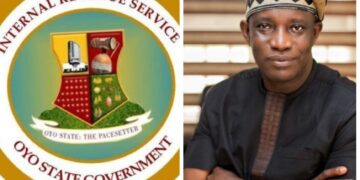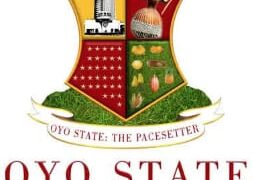Oyo; Land of Opportunities
The population of Oyo is now in the region of 6 million. The State is largest Southern State in land area and is suitable for cultivation of Maize, Yam, Cassava, Millet, Rice, Plantain, Cocoa, Oil Palm and Cashew. Oyo is the 18th largest economy in Africa. The pacesetter state boost of First position in many area of human endeavour in Africa and Nigeria in particular; University College Ibadan, Television Station, Liberty Stadium, Cocoa House just to mention a few.
The import of the State’s premier position in the field of education, sport, and infrastructure can best be appreciated if one considers availability of pool of experienced manpower (Engineers Academics, Medical Doctors, Lawyers, Accountants etc,) that constructed, administered and continue to administer these monumental edifices. Oyo State has the highest concentration of research institutes in Nigeria.
With a functional Airport and completion of both Lagos Ibadan Express way and Lagos Ibadan railway lines in the next few months and the massive road construction in Ibadan, all these provide ample investment and income earning opportunities for resident individuals and businesses.
Oyo state is the investment destination for any discerning investor. Opportunities for investment in the State exist in Agribusiness, Light Manufacturing, Healthcare, Tourism, Energy and Mining (include Clay, Kaolin and Aquamarine). It’s on records that No fewer than 36 companies had been attracted to the state in the last seven years, generating about 4,000 direct employments for residents according to figures from the Manufacturers Association of Nigeria, while the state was rated fifth most investment-friendly by the National Bureau of Statistics having attracted more than $61m (N22.4bn) in foreign direct investment.
Pace Setter State: Challenges of Governance
.However, on the flip side, Oyo State particularly Ibadan bears the burden of rural urban migration. With a growing population like any other mega city, the Government of His Excellency Senator Abiola Ajimobi has grapples with and must find solutions to Waste Management, Transportation and Traffic, Affordable and Quality Education, Disaster Management, Environmental pollution, Unemployment, Street Lights, Security, Health Services, Provision of Portable Water, Judicial system, crime prevention and control, Housing etc. All these require substantial investment in socio- economic infrastructure.
Oyo State Government under the leadership of His Excellency Senator Abiola Ajimobi, has risen up to the challenges of administering the pace state and delivered dividends of democracy to the people of the state in the last seven years must especially in the area of infrastructure development, security, education, agriculture and health care.
Some of the completed roads include the dualisation of strategic township roads in Ibadan such as Toll Gate Interchange-Challenge; New Garage-Toll Gate Interchange and Onireke-Jericho-Aleshinloye-Dugbe-Agbarigo Road, as well dualisation of major township roads in Oyo, Ogbomoso and Iseyin.
Ongoing roads include Eleyele-Ologuneru-Eruwa road, dualisation of Saki township roads, Idi-Ape-Basorun-Akobo-Odogbo Barracks Junction Road; Gate-Old Ife Road-Alakia, as well as the expansion of Oke Adu-Iwo Road. Ibadan Circular Road project, which had remained a dream in the last 15 years has been revived, the first phase of the project has been awarded for N70bn, under a build, operate and transfer arrangement.
The infrastructure upgrade included the urban flood management initiative targeted at checking the reoccurrence of the 2011 flooding in Ibadan, which consumed many lives and property.
The government had also tackled the perennial water shortage, which residents of Ibadan had been experiencing, by carrying out wholesale rehabilitation of Asejire Waterworks and also recently flagged off rehabilitation works on the Eleyele Dam, which was badly hit by the 2011 flood disaster.
The state also recorded milestones in education with “the floating of the Education Trust Fund through which stakeholders now collaborate with the government to improve service delivery and boost the standard of education in the state. This is aside the establishment of the Oyo State Model Education System Initiative (OYOMESI), which seeks to inculcate moral values in students and the School Governing Board (SGB) policy, which is a participatory model that brings together all stakeholders in the education system in the management of public secondary schools. The SGB policy is now being studied by other states in the South-West zone as a masterstroke in participatory approach to the management of public schools.
The health sector has also benefitted from the unique vision of the government with the floating of a N50bn Health Endowment Fund and a Health Insurance Scheme, both of which are firsts in Nigeria, as well as the launch of a five-year cancer control strategic plan to reduce cancer-related incidence and mortality
Other success stories of Senator Ajimobi’s administration include, restoration of security in all parts of the state through the establishment of a special security outfit, code-named ‘Operation Burst’ and the provision of patrol vans, communications equipment and armoured personnel carriers for the police and other security agencies.
Tax Payment from Social Economic Angle
Payment of taxes will provide Oyo State Government with a stable and predictable fiscal environment to promote growth, finance social and physical infrastructural needs and also reduces long term reliance on other none sustainable sources of financing Government; allocation from the federation accounts, debt and aids.
Tax payment ensures good governance by promoting the accountability of the State Government to the good people of Oyo.
Furthermore, it is in the self-enlighten interest of residents; individuals and businesses to pay their taxes. Through the provision of world class public infrastructure and services sustainably financed by taxes, Oyo State Government creates enabling environment for business to thrive. Likewise, Government expenditure on infrastructures generate opportunities in the area of employment, income and wealth creation.
Payment of Taxes as the Law, Civic Responsibility and Moral Duty
More importantly payment of taxes is statutory as provided for in Section 24(F) of the Constitution of the Federal Republic of Nigeria. Similarly, it a civic responsibility of every resident to contribute to the common wealth from where public expenditure is financed. Finally, it is a moral duty that must be performed as it is morally wrong for anybody who had not paid his taxes to enjoy facilities and infrastructure put in place through other people’s taxes.














